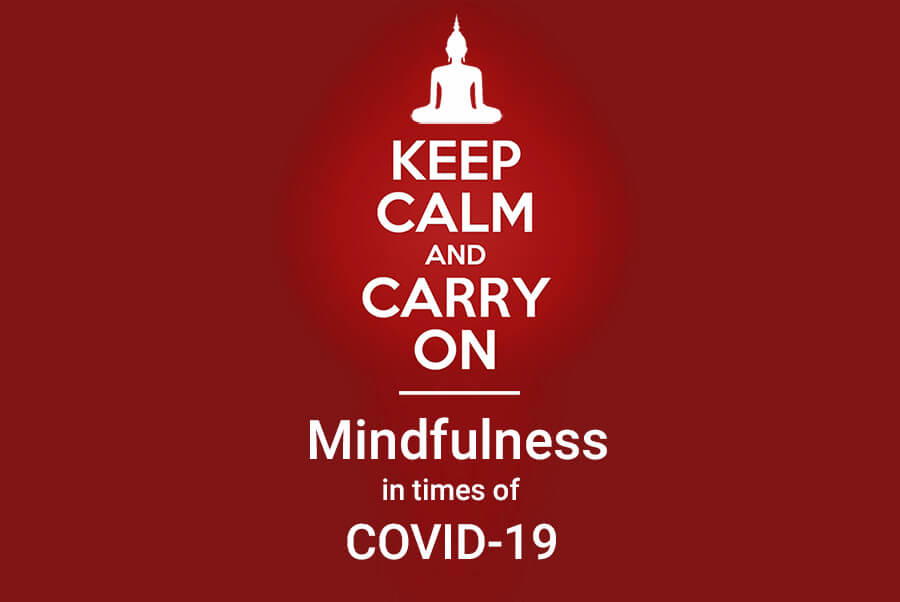
Media channels around the world are calling now for more mindfulness for avoiding the risk of infection with COVID-19.
The great news is that this is exactly one of the things mindfulness practice teaches: To become aware of automatic patterns, to stop them and to choose a new response.
Here are four main areas how mindfulness helps with preventing infection:
1. Reduces automatic behavior
2. Chooses a better behavior
3. Stress reduction supports the immune system
4. Stay informed but don’t panic
1. Reduces automatic behavior
We are asked to stop or reduce deeply ingrained behavior patterns, like touching the face, especially the mouth, nose and eyes, to cough and sneeze into the elbow or a tissue, not the bare hand and to avoid shaking hands
The impulse to touch ones face often stems from an itch in that area. People familiar with mindfulness practice will recognize the practice of “not scratching the itch” during meditation, which is training exactly what is being done here: To become aware of an impulse before the hands move and to let the impulse to itch be there and not act on it.
2. Choose a better behavior
Positive behavior patterns as washing hands often and longer, about 20 sec, to practice social distancing (6 feet if in public or work from home!) if possible or at least stay home with cold and flu symptoms have been shown to decrease the risk of contamination and spread of viral infections – and are active practices of self- and other care. We made a video this week for you with Trudy showing us mindful hand washing! We’ll be sending that to you tomorrow.
Staying away from crowds and people as much as possible seems to be the most promising behavior to slow down the spread of the pandemic in order to not overwhelm the medical system for the people who need it. Practice this as much as possible but stay connected with friends, family and InsightLA through online offerings and platforms like Zoom, Skype or Facetime. If you want a practice buddy please contact us [link] so we can connect you with a fellow practitioner. We need the mutual support now more than ever. Don’t isolate!
3. Regular mindfulness meditation boosts the immune system
Several studies show that regular mindfulness meditation practice lowers overall stress levels and boost the immune system. COVID-19 has a higher risk of complications for people with compromised immune systems. So while it might be too much of a claim to say that meditation saves from getting infected or once infected lowers the risk of complications let’s assume it does and keep practicing (it also helps a lot with the next area!!)
4. Stay informed but don’t panic
Mindfulness practice also has a proven track record of lowering anxiety and worry. With the media on the coverage of the coronavirus from around the world does what the media does, it’s easy to fall into worry or even panic.
Mindfulness helps being aware of the presence of anxiety or worry in the form of thoughts and as sensations in the body and to observe them with friendliness instead of trying to push them away. Repeatedly returning to the sensations of the breath or the grounding feeling of the feet on the floor help to reorient to the present moment instead of racing towards the anticipated future.
As the slogan goes: Keep calm and carry on! This slogan was designed and made popular during World War II to instruct British citizens how to behave in the face of threatened massive air attack. We are under another kind of unpredictable air attack by COVID-19 right now and it’s paramount that we use – and deepen!- our practice to help ourselves and the world to stay calm and get through this together.
By Christiane Wolf, MD, PhD
